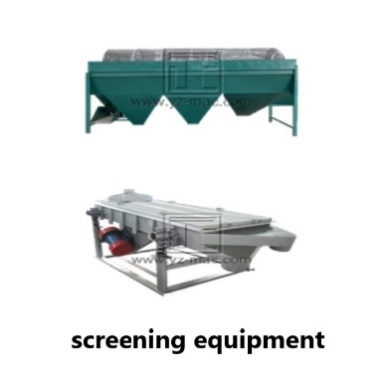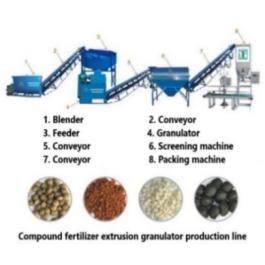Compost trommel screen
A compost trommel screen is a specialized equipment designed to sort and separate compost materials based on size. This efficient screening process helps ensure a refined compost product by removing larger particles and contaminants.
Types of Compost Trommel Screens:
Stationary Trommel Screens:
Stationary trommel screens are fixed in one position and are commonly used in medium to large-scale composting operations. They consist of a rotating cylindrical drum with perforated screens. As the compost is fed into the drum, smaller particles fall through the screens, while larger materials are discharged at the end. Stationary trommel screens offer high screening efficiency and can handle significant volumes of compost.
Mobile Trommel Screens:
Mobile trommel screens are designed to be easily transportable and adaptable to different composting sites. They feature wheels or tracks, allowing operators to move them as needed. Mobile screens offer flexibility in terms of site placement and are suitable for smaller-scale composting operations or applications where mobility is essential.
Applications of Compost Trommel Screens:
Compost Sizing and Refining:
Compost trommel screens are primarily used to size and refine the compost, ensuring a consistent particle size and texture. By removing larger materials, such as rocks, sticks, and plastic fragments, trommel screens create a refined compost product that is easier to handle and has a more uniform appearance. The refined compost is suitable for various applications, including agriculture, landscaping, and horticulture.
Contaminant Removal:
Compost trommel screens are effective in removing contaminants from compost materials. They can separate out oversized materials, non-organic debris, and other unwanted elements that may hinder the composting process or degrade the quality of the final product. By removing contaminants, trommel screens contribute to producing a clean and high-quality compost.
Compost Maturity Assessment:
Trommel screens can also be used to assess the maturity of compost. By analyzing the size and decomposition level of the screened materials, compost operators can determine the readiness of the compost for use in various applications. This allows for better management and utilization of compost based on its maturity level.
Composting System Integration:
Compost trommel screens are often integrated into larger composting systems, working in conjunction with other composting equipment. They can be connected to conveyor belts or material handling systems, facilitating the efficient transfer of compost materials and streamlining the overall composting process.
Conclusion:
Compost trommel screens play a vital role in the composting industry by efficiently sorting and refining compost materials. Whether stationary or mobile, these screens offer high screening efficiency, allowing for the removal of larger particles and contaminants, resulting in a refined compost product. Compost trommel screens find applications in compost sizing, contaminant removal, compost maturity assessment, and integration into composting systems.






